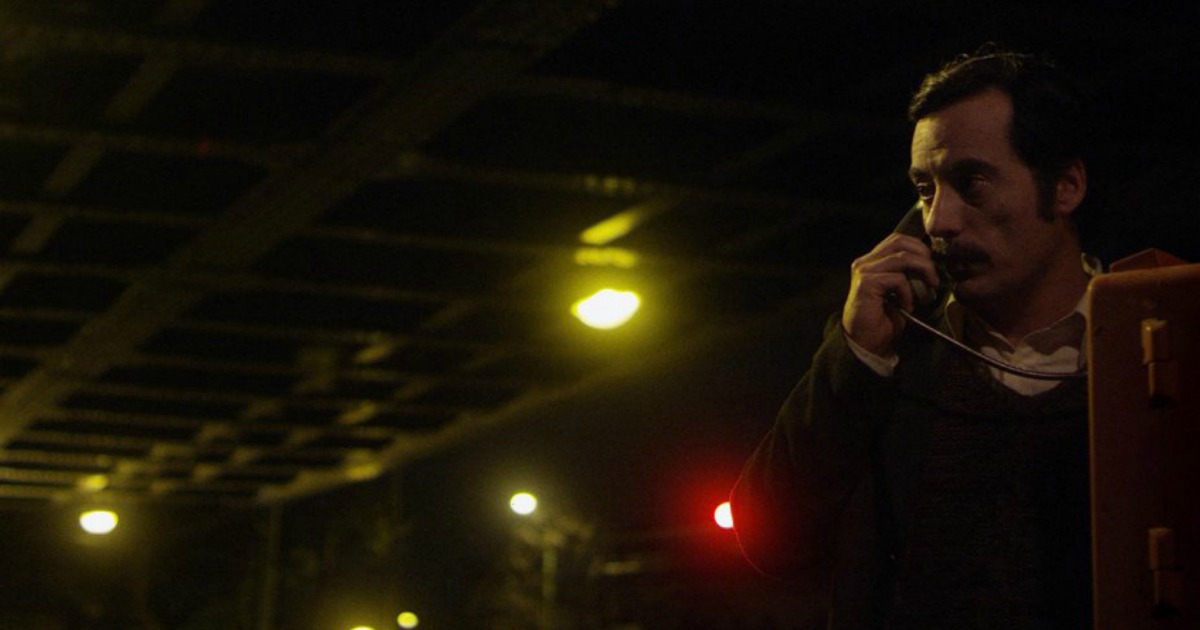
Every so often, a film comes along without much of a “heads up” through a trailer or really even festival buzz, and absolutely punches you square in the gut. Maybe it is an exciting new filmmaker making his or her debut, or there is a revelatory lead performance from an actor you’re not well versed in. And sometimes it’s both, and so very much more.
That is the case with the new political thriller The Long Night of Francisco Sanctis. The directing debut of co-directors Andrea Testa and Francisco Marquez, the film sends the viewer back to 1977 in Argentina, where the country is under oppressive junta rule. Taking a decidedly intimate approach to engrossing the viewer in this brutal regime and its effects on the larger country, the film focuses entirely on one man, the titular Sanctis. A simple, unassuming man going about his life with wife Angelica (Laura Paredes) and two children, Francisco (Diego Velazquez) is eagerly anticipating a proper and much-deserved promotion from his employer. However, nothing comes easy in this world, and after simply receiving a gift from the company he is put back in touch with an old flame, Elena. A member of the revolutionary side of the political spectrum, Elena needs his permission in order to publish a poem Francisco wrote while in school. At least that’s what she tells him. After a meeting, she tasks him with warning new people that the police are set to arrest them that very night. So that’s the long night in front of Francisco Sanctis, and it produces one of the year’s most exciting cinematic discoveries.
The above mentioned car sequence plays as the real beginning of Long Night. Following a subtle but captivating stylistic change, what begins as a relatively simple and shockingly warm character piece akin to the type of theater work that star Velazquez is most well known for, quietly shifts into a profoundly tense study of surveillance and paranoia that’s maybe set 40 years ago but feels entirely modern. A journey through the shadows of Buenos Aires, the direction here is as influenced by paranoid thrillers of years passed as it is modern neo-noir, with rich shadows and gorgeous cinematography engrossing the film in a haze of impending doom. Testa and Marquez craft a film that, like any good noir, has the semblance of neo-realism through the street-level narrative, yet heightens the surroundings, giving the film an energy and vitality all its own. There are no flights of fancy here, no bombastic narrative choices or gaudy set pieces. With tinges of films like Cat People, Testa and Marquez embed within the film a deep and profound sense of dread, with the government always watching and just on the outskirts of the frame. It’s a textbook example of a political paranoia thriller, and is as assured a debut as we’ve seen all year.
And that’s not where the discoveries stop here. Again, best known for his stage work, Velazquez turns in one of the year’s very best lead performances. Quiet and unassuming, Francisco is a prototypical everyman, and watching as we go from being introduced to him in relation to his warm relationship with his family only to see him come under a deep existential crisis is thrilling and intense. A physical performance par excellence, Velazquez tells the whole story through glances and the subtlest of movements. It’s a minimalist performance in a minimalist picture, and the two elevate each other into the ranks of the very best films of the year.



